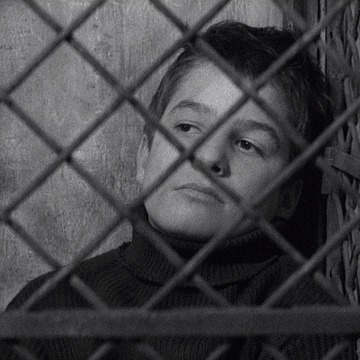 ONE ART
ONE ART
The art of losing isn’t hard to master;
so many things seem filled with the intent
to be lost that their loss is no disaster.
Lose something every day. Accept the fluster
of lost door keys, the hour badly spent.
The art of losing isn’t hard to master.
Then practice losing farther, losing faster:
places, and names, and where it was you meant
to travel. None of these will bring disaster.
I lost my mother’s watch. And look! my last, or
next-to-last, of three loved houses went.
The art of losing isn’t hard to master.
I lost two cities, lovely ones. And, vaster,
some realms I owned, two rivers, a continent.
I miss them, but it wasn’t a disaster.
–Even losing you (the joking voice, a gesture
I love) I shan’t have lied. It’s evident
the art of losing’s not too hard to master
though it may look like (Write it!) like disaster.
—ELIZABETH BISHOP
There’s so much to love about this poem. The force of the end, the way that parenthetic interjection in the last line—”(Write it!)”—breaks the flow, the rhythm, which has already started disintegrating at the beginning of the stanza, breaks it utterly, and then drops you into the ending “like disaster.” A falling off that, of course, mirrors, enacts in rhythm, in breath, in the loss of breath, the loss that it describes.
The interruption of the rhythm in the last stanza, and the slant rhyme of “gesture” and “master” points to one of the other lovely aspects of this wonderful poem—its marriage of an antiquated form, the villanelle, with a very modern sensibility and diction. The poem’s use of a modern style within the decidedly unmodern form is announced in the first stanza, with the odd break between the second and third line, and the break from the iambic rhythm in the phrase within which that break occurs—”the intent / to be lost.” The awkwardness of that phrase, with the break, seems to enact, in a way which I couldn’t precisely specify, an “intent / to be lost,” a moment of loss. The return of the rhythm for the end of the stanza seems like a coming out of darkness, a rescue or return from the abyss of loss in that phrase, lack of rhythm and line break, “the intent / to be lost”.
In the second stanza you have the less odd, but still slightly odd, break between the first and second lines, that perhaps helps draw attention to that wonderful word, “fluster,” which again seems to come out of a sensibility foreign to, more modern and prosaic than that of the villanelle.
One could go on in this vein, playing off the modern versus the antiquated, showing how the poem works these two to great effect, but to do so seems to me a bit forest-trees. It is to lose sight of how special and fierce the poem is. It is fierce with loss.
Filed under: Poetry, loss, poems
 An Ethics Occurs at the Edge / of What We Know
An Ethics Occurs at the Edge / of What We Know




